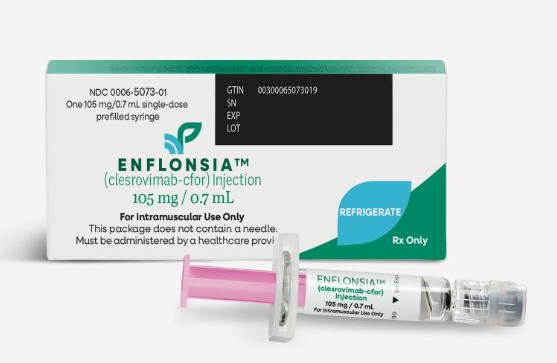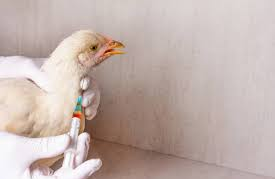The U.S. Department of Health and Human Services (DHHS) has stopped U.S. government funding for the development of next-generation COVID-19 biologics by two companies, GeoVax, Inc. of Atlanta, Georgia and CastleVax, Inc. of New York. The project had been funded by Project NextGen, a Biden administration initiative under the U.S. Center for the Biomedical Advanced Research and Development Authority (BARDA) that would cost nearly $5 billion for the “rapid development of next-generation coronavirus vaccines and treatments,” according to an HHS spokesperson in 2023, when the project was first announced.1 2
The DHHS issued stop-work orders to biotech firms GeoVax and CastleVax following an earlier order to biotech company Vaxart in February 2025 to stop development of an oral COVID vaccine pill, a stop-work order which was modified on Apr. 28, to allow Vaxart to proceed with phase 2b clinical trials.3 The stop-work orders are part of a series of federal actions pulling back on funding for the development of experimental COVID biologics and therapeutics.1
A stop-work order is a formal directive from a federal agency requiring a contractor to pause all or part of a project for up to 90 days. These orders may be issued for a variety of reasons, including funding issues, project scope changes, government policy shifts, or administrative challenges. During this period, the contractor must halt work and take any steps necessary to minimize additional costs. After 90 days, the government either cancels the stop-work order, allowing the project to resume, or terminates the contract entirely.4
Each of the companies that received stop-work orders are working on new technology and non-traditional delivery methods aimed at improving vaccine efficacy and tolerability: Vaxart, Inc. of San Francisco, California is developing an oral COVID pill; CastleVax, an intranasal spray described as “a next generation live attenuated NDV-vectored COVID-19 vaccine incorporating a stabilized SARS-CoV-2 spike protein using HexaPro technology developed at the University of Texas at Austin”;5 and GeoVax, a vaccine described as “a multiantigen SARS-CoV-2 vaccine, designated GEO-CM02 based on a Modified Vaccinia Virus (MVA) vector that expresses spike (S), membrane (M), and envelope (E) antigens” that is intended to address evolution of the SARS-CoV-2 virus to evade existing mRNA vaccines.1 6
While these innovations are being promoted as next-gen solutions, they also raise fresh concerns among critics already wary of new technologies being used to create biologicals labeled “vaccines,” including mRNA-based platforms. With questions still lingering about long-term safety, transparency, and liability, the push for newer technologies—many of which have bypassed traditional 10-15-year development timelines—has only deepened public skepticism about whether such technological advancements are truly designed with patient safety made a priority.
Despite Stop-Work Orders, BioTech Firms Plan to Move Forward Without Funding
GeoVax and CastleVax say their firms expect their grants to be terminated but still plan to move forward without the federal government funding.1
GeoVax’s CEO, David Dodd, said in a recent statement:
The financial impact to GeoVax is estimated at less than $750,000 annually, toward reimbursement of existing personnel and overhead costs. GeoVax therefore does not anticipate any significant changes to its ongoing operations resulting from the contract termination.1
CastleVax’s CEO, Michael Egan, echoed Dodd’s remarks, said, “It looks [to] me like it’s a hard and fast stop-work order leading to termination, unfortunately.” He added that the company likewise plans to continue vaccine development without the government funding.1
Liability Questions Linger as Only 20 of 13,555 COVID Vaccine Injury Claims Paid
First-generation COVID biologicals, especially mRNA based biologicals, have faced growing scrutiny, not only over concerns about efficacy, serious side effects, and the lack of long-term safety data, but also because individuals who suffer adverse reactions or death have little to no legal recourse.7 Under the Emergency Use Authorization (EUA) granted to manufacturers by the U.S. Food and Drug Administration (FDA), these products were shielded from product liability in civil courts.
According to MCT Law, a firm that represents individuals and families in vaccine injury cases, as of Dec. 1, 2024, 13,555 people in the United States had filed compensation claims with the Countermeasures Injury Compensation Program (CICP) for severe injuries related to COVID biologics. Of those claims, only 20 cases had been awarded compensation as of that date.7
These cases underscore the need for greater transparency, accountability, and meaningful legal pathways for individuals harmed by federally recommended—and in many cases mandated—genertically engineered pharmaceutical products.
If you would like to receive an e-mail notice of the most recent articles published in The Vaccine Reaction each week, click here.
Click here to view References:1 Barnhart M. US halts funding for new COVID-19 vaccines. C&EN May 1, 2025.
2 Reuters. U.S. spending $5 billion to speed up development of new COVID vaccines. Apr. 11, 2023.
3 Masson G. HHS lifts stop work order on Vaxart’s COVID-19 trial, continues funding for the 10,000 participant study. Fierce Pharma Apr. 28. 2025.
4 Pillsbury Winthrop Shaw Pittman LLP. Stop work and suspension orders: How government contractors can protect themselves. Feb. 17, 2017.
5 Synapse. CastleVax, Ind. Gets $34M from BARDA for Phase 2b Testing of Intranasal COVID-19 Vaccine. Aug. 8. 2024.
6 Stone S, Elsharkawy A, Burleson JD et al. Multi-Antigen Viral-Vectored Vaccine Protects Against SARS-CoV-2 and Varians in a Lethal ACE2 Transgenic Mouse Model. Vaccines Apr. 15, 2025; 13(4).
7 MCT Law. (2024). COVID-19 vaccine injury claims and compensation.












